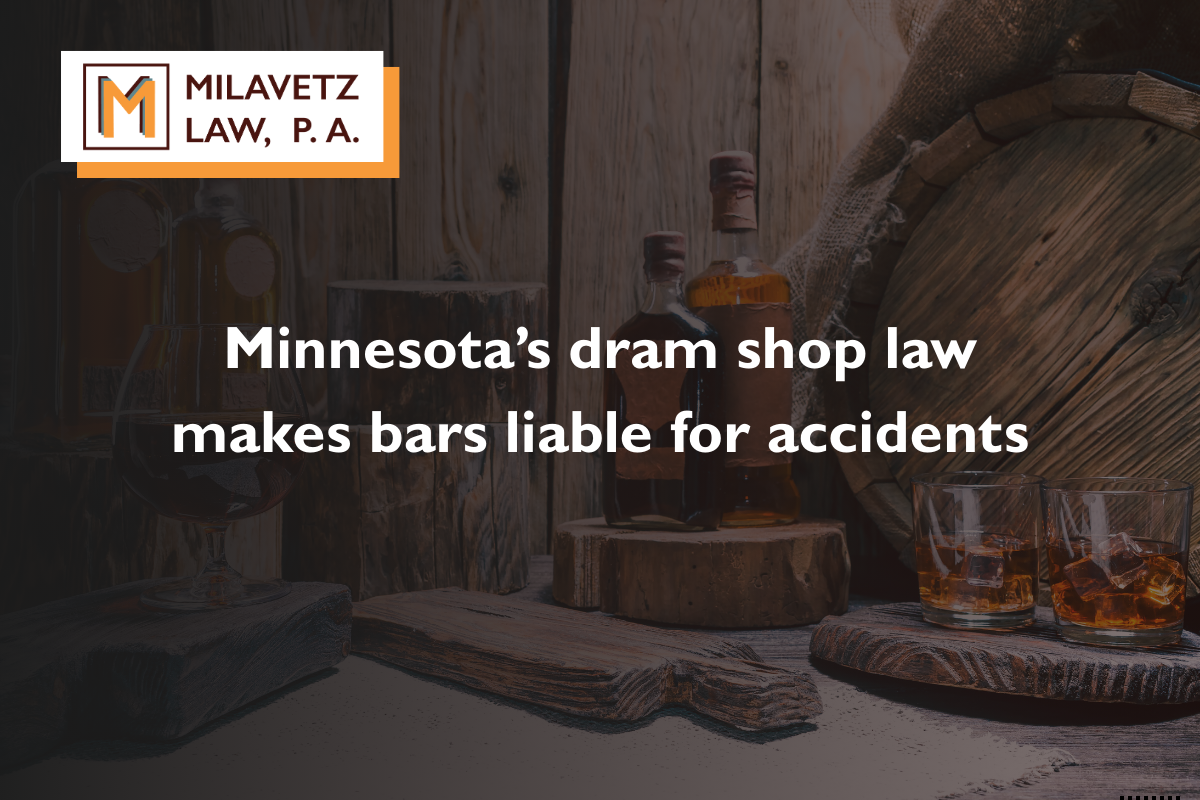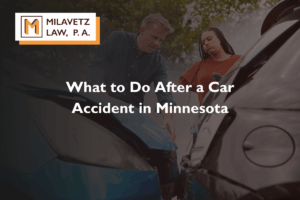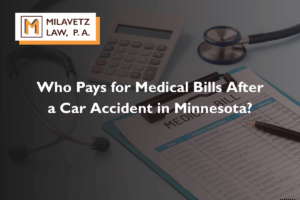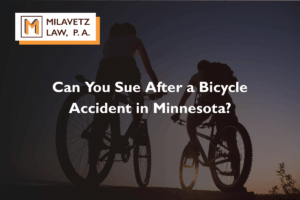
The sad stories come to us all the time via the news or social media. A drunk driver’s been arrested, sometimes having caused an accident that’s injured or killed someone. We might not ordinarily stop to wonder where the alcohol came from.
But there’s a good chance many bar owners all over the Twin Cities Metro feel a twinge of more personal worry. Minnesota law includes a provision allowing a person injured by a drunk driver to sue the bar or restaurant that served overserved the driver. The law is called the Dram Shop Law.
A tragic case in Northeast
A 31-year-old man was on his way to a meeting to speak to fellow Minnesotans in recovery.
According to news reports, he’d spent much of that November day playing in the fall leaves with his daughter, and then mounted his motorcycle to go to the meeting. He’d become addicted to pain medication after a serious auto accident years earlier, and was now dedicated to sharing his experience with people having similar struggles.
Heading west on Broadway in the Northeast neighborhood of Minneapolis, a car suddenly turned in front of him, according to court documents. His motorcycle struck it and he died in the hospital later that night.
The driver of car had a blood alcohol level of 0.19, more than twice the legal limit. She’s spent the morning at work, serving Sunday brunch at a local bar where, according to some, servers were encouraged to drink along with patrons.
After work, according to testimony, she moved on to another favorite bar of the neighborhood. She was then driving back to her St. Paul apartment, when she met the man on his motorcycle.
Two bars sued under the Dram Shop Law
The woman was charged with criminal vehicular homicide and spent many months in the Shakopee women’s prison. But the legal proceedings didn’t end there.
The two bars were sued by the man’s family in civil court under the Dram Shop Law. The law allows people who are injured, or the families of those killed, to hold businesses liable for selling alcohol to an already “obviously intoxicated” person, thereby causing harm.
Selling, in the context of this law, includes third parties such as customers buying drinks for the intoxicated person, as when bar customers bought the woman drinks during her shift (where some witnesses claimed this was very common).
Minnesota is one of about 35 states with similar laws. The state also has a separate but, in some ways, similar law that permits liability for “social hosts” who serve underage drinkers, causing injury.
















